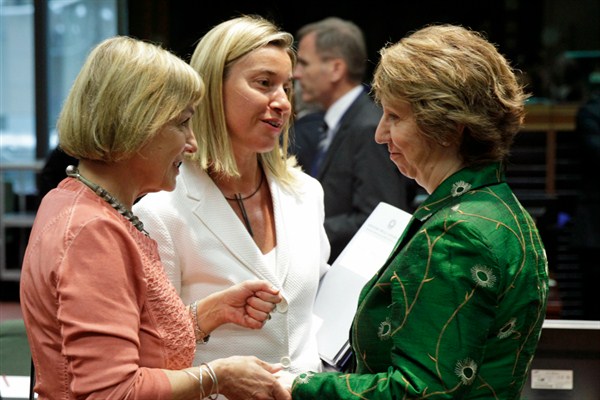Last week Bulgaria nominated Kristalina Georgieva to be the European Union foreign policy chief. Her nomination appears to be gaining momentum after several countries, mostly in Central and Eastern Europe, raised objections to Italy’s candidate, Foreign Minister Federica Mogherini, given her close ties to Russia.
The debate over the selection of the next EU foreign policy chief highlights the east-west divide that has existed since the bloc’s 2004 enlargement, when 10 countries in Central and Eastern Europe joined the EU.
The very different histories of Eastern and Western Europe since World War II have shaped the political, cultural and economic contrasts between them today. “Culturally the East . . . is generally more conservative,” says Andre Liebich, honorary professor of international history at the Graduate Institute of International and Development Studies in Geneva, including on issues such as women’s and gay rights. Politically, he explains, “Eastern European countries are Russophobic to the core.” This has fueled their response to the crisis in Ukraine as “the East sees Russia as an overwhelming danger.” As such, Poland and the Baltics countries have been the loudest critics of Russia’s annexation of Crimea and the biggest advocates of tougher sanctions against Russia.

